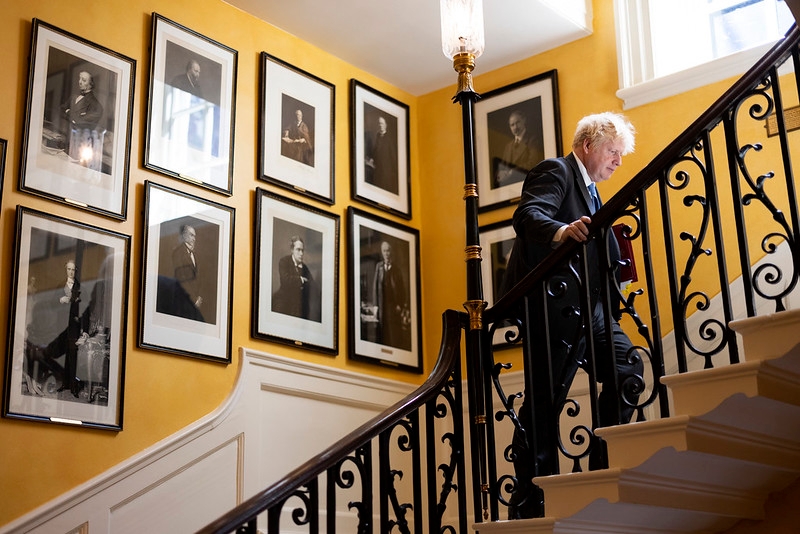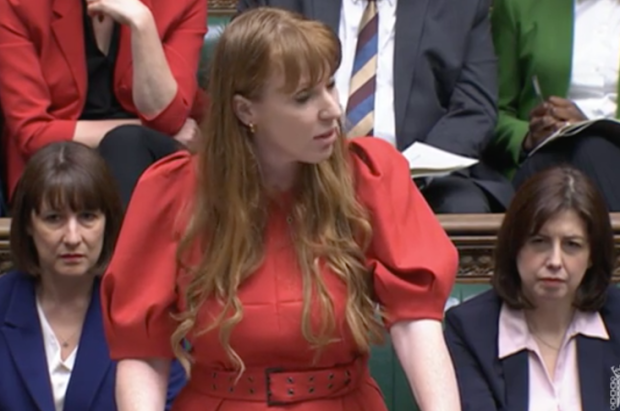Boris Johnson may have been unable to work his magic on the burghers of Chesham as he did on fellow G7 leaders last weekend at Carbis Bay. But as he approaches his second anniversary in power next month, it is worth asking whether he is on track to become one of the landmark prime ministers in British history.
Since the office was created 300 years ago this April, just nine prime ministers have emerged as giants. These eight men and one woman changed the course of history, and had successors who tried to emulate them, or distance themselves – but none could escape their shadow. Of the remaining 46 PMs, the majority departed Downing Street leaving little or no trace.
No landmark PM has held office since Margaret Thatcher in 1979. (Blair did not fundamentally reshape the country, nor reframe its relationship with the European Union, nor did he leave Britain’s standing in the world higher. He had enormous opportunities but failed to be the agenda-changing prime minister he set out to be.) Landmark PMs come around only once every 30 years: we are overdue another.
Most across the political spectrum deem it risible that a man so lacking in qualities and character could possibly be considered a landmark PM. Last month his former chief advisor, Dominic Cummings, who knows him better than most, dismissed him as ‘unfit for office’, while a widely-read profile, by Tom McTague in the Atlantic magazine, portrayed him as a hapless optimist, gaily spinning plates and yarns, but not spinning the durable yarn of a serious statesman.
Since Johnson became prime minister in July 2019, the predominant narrative has been his gadfly mind, cavalier attention to detail, lies and half-truths, infidelity and indiscretions, inability to inspire trust or to think ahead beyond his next gaffe or frivolity.
So far, so normal for Britain’s landmark prime ministers, all of whom were riddled with similar idiosyncratic faults. Many were unfit for office, morally or professionally. Most were neither likeable nor trustworthy: all were deeply egocentric, inconsistent and despised by many of their contemporaries.
Robert Walpole, so like Johnson in circumstance and character, was incorrigibly corrupt and opportunistic. The Old Etonian almost died too in his first year in office, weaved and ducked to outwit his rivals, and lived openly with his 25-year younger mistress before marrying her. Lord Palmerston’s libido makes Johnson, with his six children from three women, look positively chaste.
Author and serial back-stabber Benjamin Disraeli, the PM Johnson most resembles, renders Johnson boringly steadfast in comparison.
David Lloyd George’s lies, dodgy appointments and financial greed comfortably trumps Johnson’s peregrinations.
History forgives great prime ministers their foibles. It doesn’t forgive the technically proficient and moral paragons who reshape neither the office nor their country.
Landmark prime ministers are larger than life figures with star quality. Run-of-the-mill PMs shrink into the job. The formidable Foreign Secretary Anthony Eden soon drowned in the churning waters of Number 10. Gordon Brown proved a much chippier chancellor than prime minister, David Cameron a much more lacerating figure as leader of the opposition, while Theresa May’s command as Home Secretary evaporated in No. 10. Historic PMs exude animal energy: insiders respect and fear them.
We can ponder the qualities individuals need to be good prime ministers. But landmark prime ministers don’t need good qualities to be successful: they need historic opportunities.
All nine historic PMs were in office at times of major change and opportunity: Pitt the Younger during the revolutionary and Napoleonic wars, Palmerston during the Crimean war, Lloyd George the first world war, and Winston Churchill the second. Historic events crush or make prime ministers depending how they respond to them.
Boris Johnson will always be the PM who brought about Brexit, the biggest decision by any government this century: he was in power during Covid, the worst epidemic for over 100 years and oversaw the largest collapse in economic growth in 300 years. Even if he quits tomorrow, he would still be written about in 100 years’ time as a figure of massive consequence and interest.
History makes prime ministers more than prime ministers make history.
The landmark prime ministers have all won landslides, like Johnson’s, the biggest for his party in over 30 years. They all enjoyed at least five years in office: Johnson is assured that, bar a catastrophe. They all benefited, as did Attlee and Thatcher, and as Johnson is now, from a sea change in the climate of opinion in their favour.
Luck was on their side: Churchill would have made a rotten PM in 1918, Thatcher in 1970 or Johnson in 2016. Johnson has been lucky in his principal adversary, Jeremy Corbyn and now, surprisingly perhaps, Keir Starmer. Johnson was lucky that his agenda – Brexit and Covid recovery – was thrust upon him.
Most significant, these PMs had strong purpose and agendas. They didn’t dilly-dally about: they got on with it, as did Robert Peel after 1841, Gladstone after 1868 and Attlee after 1945.
The second rank of PM, despite landslides and some significant changes, lacked a compelling story to tell the nation. Disraeli, not in the top tier, was stronger on rhetoric than substance. Harold Wilson won four general elections, but what did he actually stand for? His ‘white heat of technology’ was a promising phrase which didn’t translate into a coherent agenda in government. Too many PMs trumpet slogans – ‘the third way’, ‘big society’, ‘burning injustices’ – but their overly-inflated staff in Downing Street cannot fashion them into policy. Blair squandered his opportunities to transform Britain when his political capital was at its greatest. There are no second chances in Number 10.
Johnson is far from home and dry. Does he have it in him to give real substance to his levelling up agenda? The resignation of Kevan Collins, his catch-up tsar, suggests strategic clarity needs urgent grip. The economy, health and education require high quality policy-making. Scotland or Northern Ireland could yet undo him.
A second election victory, a competent exit from the epidemic, a post-EU global stature for Britain, strengthening of the economy and some incremental reforms would propel Johnson into the same class as the other nine historic PMs.
Will he be able to cast frivolity aside with growing experience of office? All landmark prime ministers had a deep moral seriousness which Johnson so evidently lacks.
The prime minister Johnson would most like to dine with? Gladstone, he told me in a recent radio series. Interesting choice: I had expected Churchill. The Grand Old Man jettisoned positions now considered morally reprehensible in favour of ethical policies. Could the newly married and re-Catholicised Boris Johnson be eying up just such a transfiguration?
<//>
Got something to add? Join the discussion and comment below.
Get 10 issues for just $10
Subscribe to The Spectator Australia today for the next 10 magazine issues, plus full online access, for just $10.
Anthony Seldon’s Impossible Office: The History of the British Prime Minister is now published



















Comments
Don't miss out
Join the conversation with other Spectator Australia readers. Subscribe to leave a comment.
SUBSCRIBEAlready a subscriber? Log in